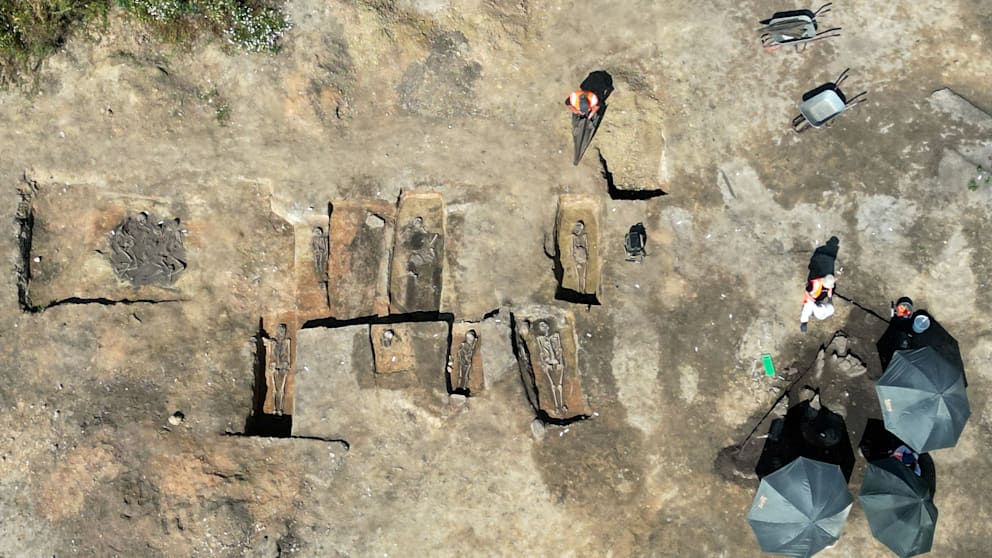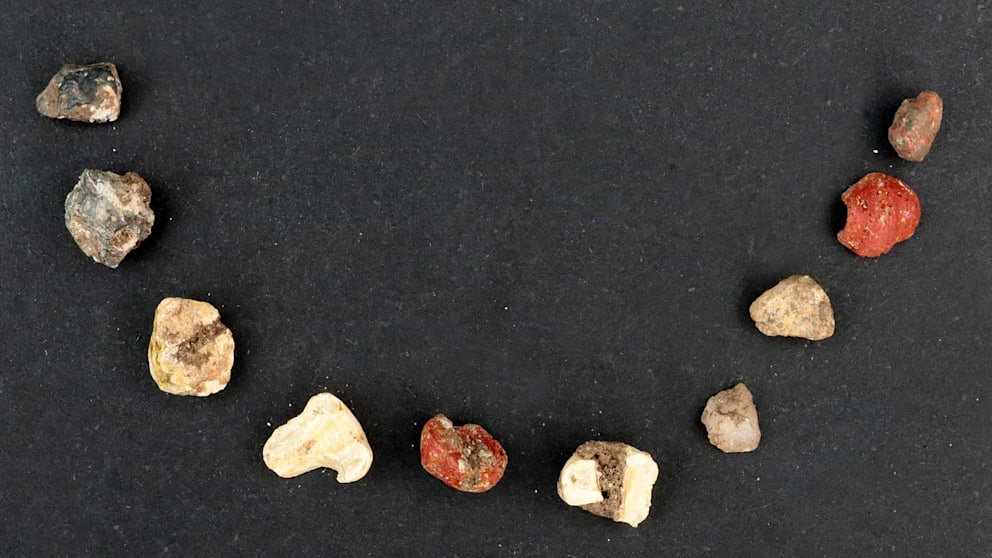1000 year old grave: Mystery surrounding the necklace of the child with hydrocephalus | Regional
Wettin-Löbejün (Saxony-Anhalt) – In the Middle Ages, they were an outcast group of society and were considered a social problem: people with disabilities! Because their physical and mental impairments were considered a punishment from God.
Bones discovered on highway
The discovery of a 1000-year-old skeleton in Saxony-Anhalt raises even more questions: archaeologists from the State Office for Monument Preservation and archeology (LDA) discovered the bones of a child with hydrocephalus during their excavations on the A 14 near Löbejün.
The mystery: In the earth, the researchers found a stone pearl necklace as Grave goods.

Excavation assistant Kazim Bakhtiyari carefully exposes the child with hydrocephalus
Head of department Susanne Friederich from the LDA: “The discovery is unusual because the dead we found in the Burial ground found after the Christian rite. And such grave goods were not common.”
Excavations due to power line
The discovery was made during preparatory construction work on the “SuedOstLink” route of the network operator “50Hertz”: Since the end of 2023, a Slavic settlement dating back over 1,000 years, including a craftsmen’s quarter and an adjacent cemetery, has been uncovered there.

The archaeological excavations near the A 14 will be completed in August
A funeral occupies the Researchers now especially: “We found a sick child who was probably suffering from 'hydrocephalus', also known as water on the brain,” says Friederich.
Speculation about child with hydrocephalus
This is a condition in which cerebrospinal fluid accumulates inside the skull, leading to increased pressure in the head.
In fetuses and infants with still unstable skull bones, the pressure is compensated by balloon-like inflation of the skull, as was the case with the deceased child. Due to the high pressure on the brain, those affected experience various Failure symptoms. Sick people often need care.
Friederich: “Since there was no medical treatment for the disease at that time, the child had only a short life expectancy.”

According to archaeologists, the necklace made of stone beads is not a common grave good for burials according to the Christian rite of the time
Was there inclusion in the early Middle Ages?
But the disabled child was apparently not rejected: “It seems more like the child was given special respect. This is indicated by the pearls that we found in the chest area.”
Further investigations will now show to what extent this was a sign of concern for the child.
